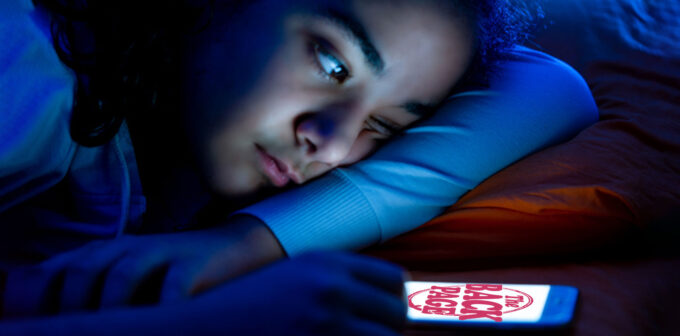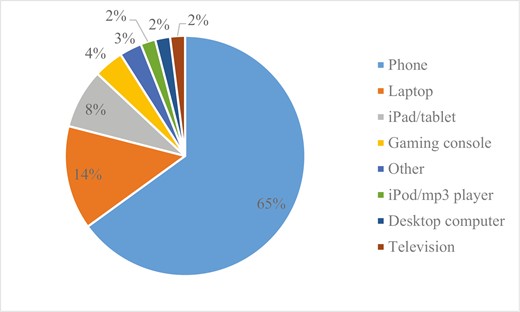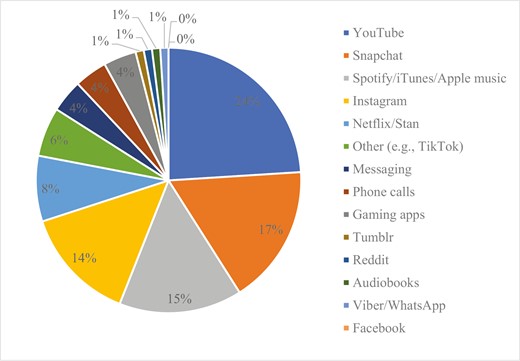
Teenagers use apps at night to distract from negative thoughts as well as seek emotional support from friends.
Everyone knows that using technology at night causes sleep problems … right?
The accepted wisdom is that watching Netflix or scrolling through TikTok last thing at night worsens sleep through the effects of bright screens, cognitive arousal and/or displacement of sleep time.
Well. According to the authors of a study published in Sleep Advances, the third of those is the only one supported by the evidence, and the causality arrow between sleep problems and tech use may in fact point the other way from what we’ve assumed. They cite previous research including longitudinal studies that strongly suggest sleep problems precede nocturnal technology use, not the reverse.
Previous studies have also shown that “worry and rumination peak in the pre-sleep period”.
The Flinders University-based team set out to establish whether using various apps on various devices helped distract teenagers from troubling thoughts that might be stopping them from falling asleep.
They surveyed more than 600 adolescents about whether they used tech at night (yes, sometimes or no), their reasons for doing so, their preferred device and content, whether they believed they had a sleep problem and their sleep onset time (SOT) and sleep onset latency (SOL).
SOTs in the sometimes and yes groups were significantly later than in the no group, and SOL was significantly later in the yesses than in the nos.
The phone greatly outpolled all other devices, followed by the laptop, and YouTube edged into first place for apps, followed by Snapchat, music apps and Instagram. Only then did Netflix get a look in, followed by “Other, e.g. TikTok” in a surprisingly weak showing by the Chinese-owned moral/tech panic generator du jour. Facebook came last of the individually named apps and Twitter did not, you’ll be shocked, make the cut at all.


Survey questions included “Do you use any form of technology to help distract yourself from negative or distressing thoughts in the hour before bed?” – a somewhat leading question to which 62% answered yes or sometimes. Those who answered yes were twice as likely (36% vs 18%) to have a self-reported sleep problem as the rest, and those who reported no sleep problems were twice as likely (44% vs 23%) to answer no.
In a qualitative part of the study using free-text answers, subjects expressed reasons along the lines of “watching things on my laptop distracts me from everything else going on in my life” and “I find video games to be the most immersive source of media. I can insert myself into the experience and it makes it easier to ignore what’s going on around me”.
Based on these results, the authors propose than removing devices from bedrooms may be counterproductive: “Leaving many adolescents without this method to cope with their negative thoughts, might lead to more serious emotional health issues, such as sleep disorders and depression.”
They stop short of concluding that device use succeeds in helping kids fall asleep, however. “Pre-bedtime technology use seems to be a double-edged sword – adolescents both identify it as a dependency and competing with their sleep but also as an integral part of their wind-down routine.”
They note the apps have very different, well, applications, with renowned sleep-shortener YouTube being passive entertainment while Snapchat allows kids to connect with friends for emotional support rather than just distracting them from their problems.
They conclude that “Theoretical models as well as recommendations to adolescents, parents, and health professionals need updating to take into account that technology may be an integral part of many adolescents’ sleep routines, to help them regulate their negative thoughts.”
Sending tips to penny@medicalrepublic.com.au guarantees sweet dreams.

